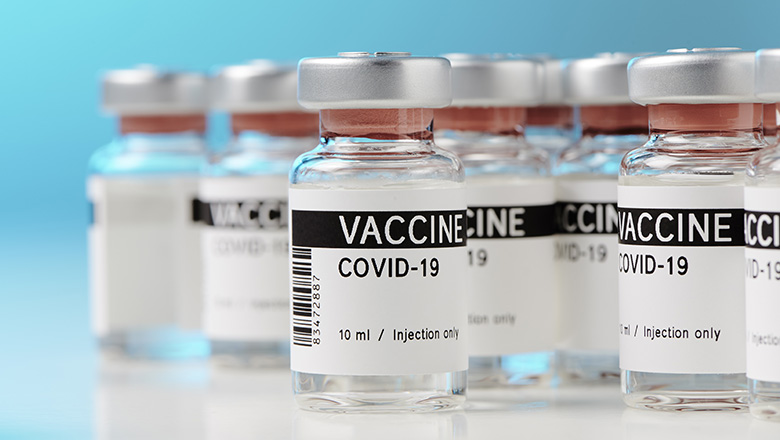Q&A: Where are we in the COVID-19 vaccine race?
Q&A: Where are we in the COVID-19 vaccine race?

NEW DELHI: Drug makers and research centres around the world are working on COVID-19 vaccines, with large global trials of several of the candidates involving tens of thousands of participants well underway.
The following is what we know about the race to deliver vaccines to help end the coronavirus pandemic that has claimed more than 1.34 million lives worldwide:
Who is furthest along?
U.S. drug maker Pfizer Inc and German partner BioNTech SE released final late-stage trial data on Nov. 18 that showed their shot was 95 per cent effective at stopping COVID-19, the highest efficacy rate so far.
The companies are the first to publish final Phase III efficacy and safety data and plan to apply for an emergency use authorization (EUA) in the United States within days.
On Nov. 16, another U.S. pharmaceutical company, Moderna Inc, released interim data showing that its vaccine worked in a large, late-stage clinical trial with a 94.5 per cent efficacy rate.
Interim late-stage trial results for Russias Sputnik V vaccine published on Nov. 11 showed the shot is 92 per cent effective.
AstraZeneca said on Monday its vaccine for the novel coronavirus, developed by Oxford University, could be around 90 per cent effective without any serious side effects.
Johnson & Johnson says it is on track to deliver data this year.
What happens in these trials?
The companies are testing their vaccines against a placebo -typically saline solution – in healthy volunteers to see if the rate of COVID-19 infection among those who got the vaccine is significantly lower than in those who received the dummy shot.
What were pharma companies waiting for to release data?
The trials rely on subjects becoming naturally infected with the coronavirus, so how long it takes to generate results largely depends on how pervasive the virus is where trials are being conducted. Each drug maker has targeted a specific number of infections to trigger a first analysis of their data.
Early in the trials, infection rates were low. With a surge in infections around the globe in October and November, trial participants became infected more quickly.
Pfizers final results were based on 170 cases within its trial involving more than 43,000 participants.
Moderna conducted its interim analysis after 95 participants developed COVID-19, while Russias examination was conductedafter 20 volunteers developed the disease.
AstraZeneca said its interim analysis was based on 131 infections among participants who received the vaccine and those in a control group who were given an established meningitis shot.
How well are the vaccines supposed to work?
The World Health Organization (WHO) ideally wants to see at least 70 per cent efficacy in trials. The U.S. Food and Drug Administration wants at least 50 per cent – which means there must be at least twice as many infections among volunteers who received a placebo as among those in the vaccine group. The European Medicines Agency has said it may accept a lower efficacy level.
When will regulators rule on safety and efficacy?
Pfizer/BioNTech plan to submit an EU A application in the United States within days. Moderna aims to file an application in the coming weeks once it has the two months of safety data on half the trial participants, as required by the U.S. Food and Drug Administration. That should happen in the second half of November.
That means an FDA decision is unlikely before December.
AstraZeneca said on Monday it will immediately prepare regulatory submission of the data to authorities around the world that have a framework in place for conditional or early approval.
Regulators for Europe, the United Kingdom and Canada areconsidering data as it becomes available. It is not clear whencompanies will submit efficacy data or when the agencies wouldmake a decision.
Could these be the first widely available coronavirus vaccines?
Yes, although China launched an emergency use programme in July aimed at essential workers and others at high risk of infection that has vaccinated hundreds of thousands of people.
At least four Chinese vaccines are far along including thosefrom China National Biotec Group (CNBG), Can Sino Biologics and Sinovac Biotech.
Sinovac said on Nov. 18 that mid-stage trial results showed its CoronaVac vaccine triggered a quick immune response but thelevel of antibodies produced was lower than in people who had recovered from the disease.
CNBG has said it expects early trial data as soon as November.
Russia has also given the Sputnik V vaccine developed by the Gamaleya Institute to 10,000 members of the general population considered at high risk of contracting the virus.
Source: Reuters, Reporting by Carmel Crimmins and Carl ODonnell; Additional reporting by Julie Steenhuysen in Chicago, Michael Erman in New York, Ludwig Burger in Frankfurt, Alistair Smout in London and Polina Ivanova in Moscow; Editing by Caroline Humer, Edwina Gibbs, David Clarke and Susan Fenton







